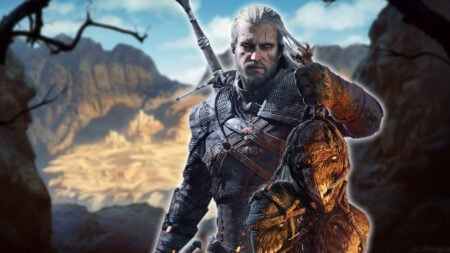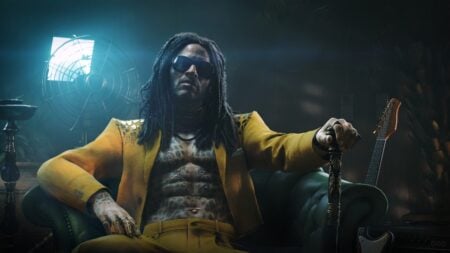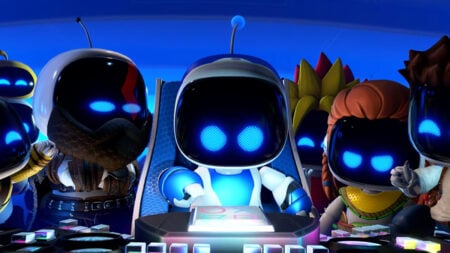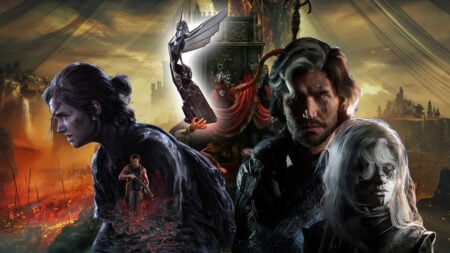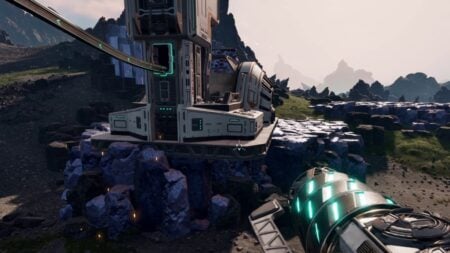Skip To...
Solo Leveling: ARISE is an expansive look at the world of its eponymous series created by Chugong, and one of the most iconic power fantasies around. However, the playable power fantasy concept is tricky when making a balanced, engaging gaming experience. New game design challenges emerge with an increasingly overpowered star. The difficulties of making a sustainable game like Solo Leveling: ARISE and featuring a munchkin protagonist can be imposing.
In exploring this, I recently got to ask the Executive Project Director Seong-Keon Jin how Solo Leveling: ARISE staves off attempts to break the game.

Jin confirms that the game is intentionally designed to feature Sung Jinwoo, its munchkin protagonist, with modes to keep gameplay interesting. This results in a balancing act where Jinwoo occasionally takes a backseat to prevent munchkin shenanigans in Solo Leveling: Arise.
What is a Munchkin in Solo Leveling: ARISE?
For RPG Newcomers, This Choice of Words is Surprising

A ‘munchkin’ in Solo Leveling: ARISE is just like a munchkin in any RPG, a term possibly originating from tabletop RPGs. Simply put, a munchkin refers to a game player who must win at any cost. It’s a power gaming trend that manifests from a child unable to cope with losing, as discussed on TV Tropes. In Solo Leveling: ARISE’s protagonist is a munchkin, with the added twist that if he loses, it means he dies.
Solo Leveling plays into the munchkin mentality, with its protagonist given the ability to gain levels and other skills. This is contrary to his fellow Hunters, and as a result, Jinwoo grows stronger than anybody, protected by the “System.” This System heaps challenges on him daily to gain levels and intentionally puts safeguards along his path to prevent him from dying. Solo Leveling: ARISE feels like a story in which the munchkin player is rewarded spectacularly.
Is Solo Leveling: ARISE Built Around a Munchkin Version of Jinwoo?
Executive Project Director Seong-Keon Jin Discusses Power Creep and Balancing





Wanting to keep a sustainable, interesting experience in Solo Leveling: ARISE, director Seon-Keon Jin doesn’t avoid the munchkin aspects. In RPGs, it’s often erroneously claimed that a system is poor if it can be exploited by power gamers.
Instead, Solo Leveling: ARISE allows players to level Sung Jinwoo up as he normally would while also offering chances to play as other characters. This results in Sung Jinwoo Mode and Hunter Mode. The gacha mechanics reflect these two modes by giving Jinwoo a variety of excellent weapons for scaling. Hunters are practically scaled the same, so they’re valued equally as desirable prizes. This underscores how much less powerful they are than Jinwoo while spicing up the team-building aspect.
A lot of effort was put into transforming a webtoon featuring a munchkin protagonist into a game. Balance was achieved by having two different game modes: Sung Jinwoo Mode and Hunter Mode. In Sung Jinwoo Mode, users can play as Sung Jinwoo alongside other summoned Hunters and Shadows. In Hunter Mode, they can control a team of Hunters (excluding Jinwoo) that can tag in for one another. With these two different game modes balancing the game, players will find Solo Leveling: ARISE enjoyable, no matter their playstyle.
Executive Project Director Seon-Keon Jin
Sung Jinwoo quickly becomes a killing machine in Solo Leveling. Solo Leveling: ARISE doesn’t downplay that, making him the star of his solo mode. Supporting Hunters flank Jinwoo in this mode, giving Jinwoo and his Shadows the focus they deserve. Players can give into their munchkin impulses by choosing which of his stats to level, and the best possible weapons for Jinwoo in Solo Leveling: ARISE.
Meanwhile, Hunter Mode allows the comparatively underpowered characters received from the game’s gacha mechanics to function as a three-Hunter unit. Each character is more prone to death and deals less damage. Solo Leveling: ARISE still allows munchkin players to game the meta by choosing the best Hunters and gear. However, nothing stops casual players from enjoying easter eggs like Park Beom-Shik’s Ultimate Attack.


